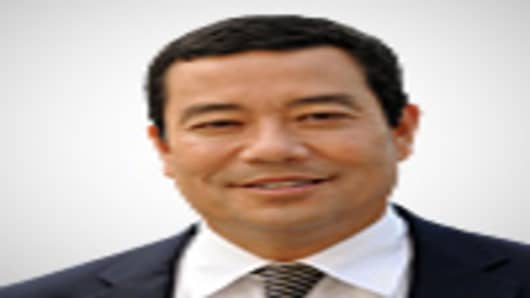Hard choices and enduring pain are not something that most market participants are interested in. After all, companies are looking to provide good news to investors; even the government is interested in optimism. But raining on this parade is former Federal Reserve chief Paul Volcker and he was spreading his message of prudence on Capitol Hill Tuesday.
The world according to Volcker is one of trimming excesses and living within your means.
Speculation and high flying strategies don't sit well with this well-respected financial mind. For those of us who remember 18% mortgage rates during a difficult period of stagflation, it was bitter medicine. But it worked to break that perilous condition and it was engineered by Paul Volcker. It was a tough solution and not without major pain, but that's the former Fed Chief's way; sometimes pain is necessary to solve problems.
Tuesday's testimony by Paul Volckerleft many questions unanswered.
Senator Shelby asked why should there be a ban in proprietary trading if there is no evidence that this caused the financial meltdown. The answer provided did not directly answer this question but the theme remained intact; reduce risk, force companies to be more conservative, and reduced profitability to provide some stability to the financial system. Kill the "too big to fail" concept by shrinking companies that are currently "too big to fail." Tighten your belt, take your medicine and live within your means.
The conflict that lies ahead will be one of creative activities by financial institutions versus very simple deposit and lending strategies; high profitability enterprises versus low profitability businesses. While there will likely be a handful of companies (including institutions like Goldman Sachs) that might be affected directly by the proposed regulations, the effects will reverberate throughout the entire financial world. Banking will change and become a more conservative enterprise. And unless global agreement is reached, US companies could very well be at a competitive disadvantage. Ripple effects abound.
For investors, the resulting legislation and regulation could change the landscape for expected returns going forward. Less leverage may mean less risk to the economy but it also tends to mean lower returns for investors. High valuation ratios will certainly come under pressure if certain practices are banned or constrained. The result could be the clear emergence of two different types of financial institutions; trading companies and deposit and lending firms. And when that separation occurs, expect proposals for additional legislation to curb trading leverage and to encourage more conservative lending practices. No firm will be untouched.
No one can argue against the reality that excesses were a large part of the meltdown in the economy. The real question now is how much pain is needed to ring out those excesses, and is regulation the right way to do it rather than increasing disclosure requirements. In the end, compromise will likely rule the day, just as it appears to be the case with health care reform. But no one should doubt that the winds of change are upon us and populist anger about the last two years isn't going away.
Yes, the political winds suggest more regulation is headed our way. No one can be sure how great the tectonic shift will be. But if Paul Volcker has anything to say about it, change is coming. And coming very soon.
___________________


